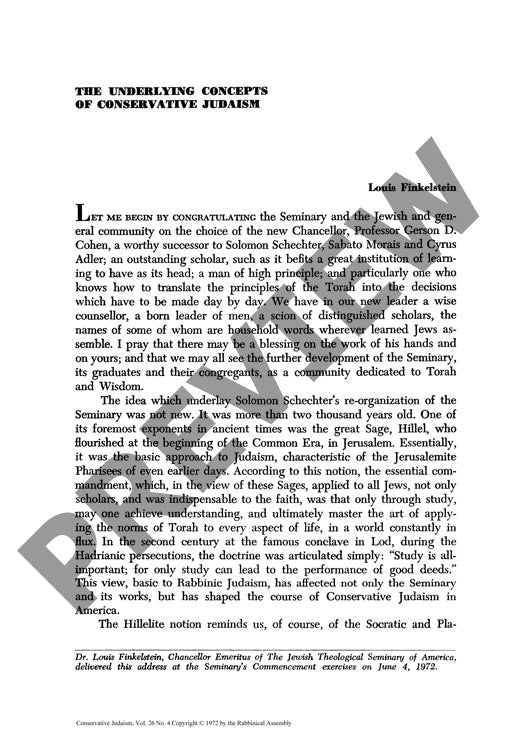The Underlying Concepts of Conservative
Couldn't load pickup availability
Conservative Judaism's intellectual foundations trace directly to the Jerusalem Pharisees and their revolutionary approach to religious understanding through scholarly inquiry. By analyzing historical records and philosophical texts, Finkelstein reveals how the ancient sage Hillel's doctrine that "study is all-important; for only study can lead to the performance of good deeds" became the cornerstone of Conservative Jewish thought. This emphasis on intellectual engagement over dogmatic obedience manifested powerfully when Solomon Schechter reorganized the Jewish Theological Seminary, institutionalizing these ancient principles into a modern religious movement. Through historical-philosophical methodology, the analysis demonstrates how Conservative Judaism's embrace of reasoned argument, grounded in Torah teachings while permitting innovation, stems from the recognition that finite human understanding can only grasp portions of infinite divine truth. This intellectual framework necessarily produces diversity in interpretation and practice, while maintaining authentic connections to Jewish tradition. By integrating traditional Jewish learning with modern disciplines like psychology and social sciences, Conservative Judaism offers religious leaders a robust framework for addressing contemporary moral and ethical challenges. The movement's unique positioning - valuing precedent while remaining open to necessary change - provides a vital bridge between ancient wisdom and modern needs.

More Information
-
Physical Description
-
Publication Information
Published
ISBN
-
Publication Credits
Louis Finkelstein

